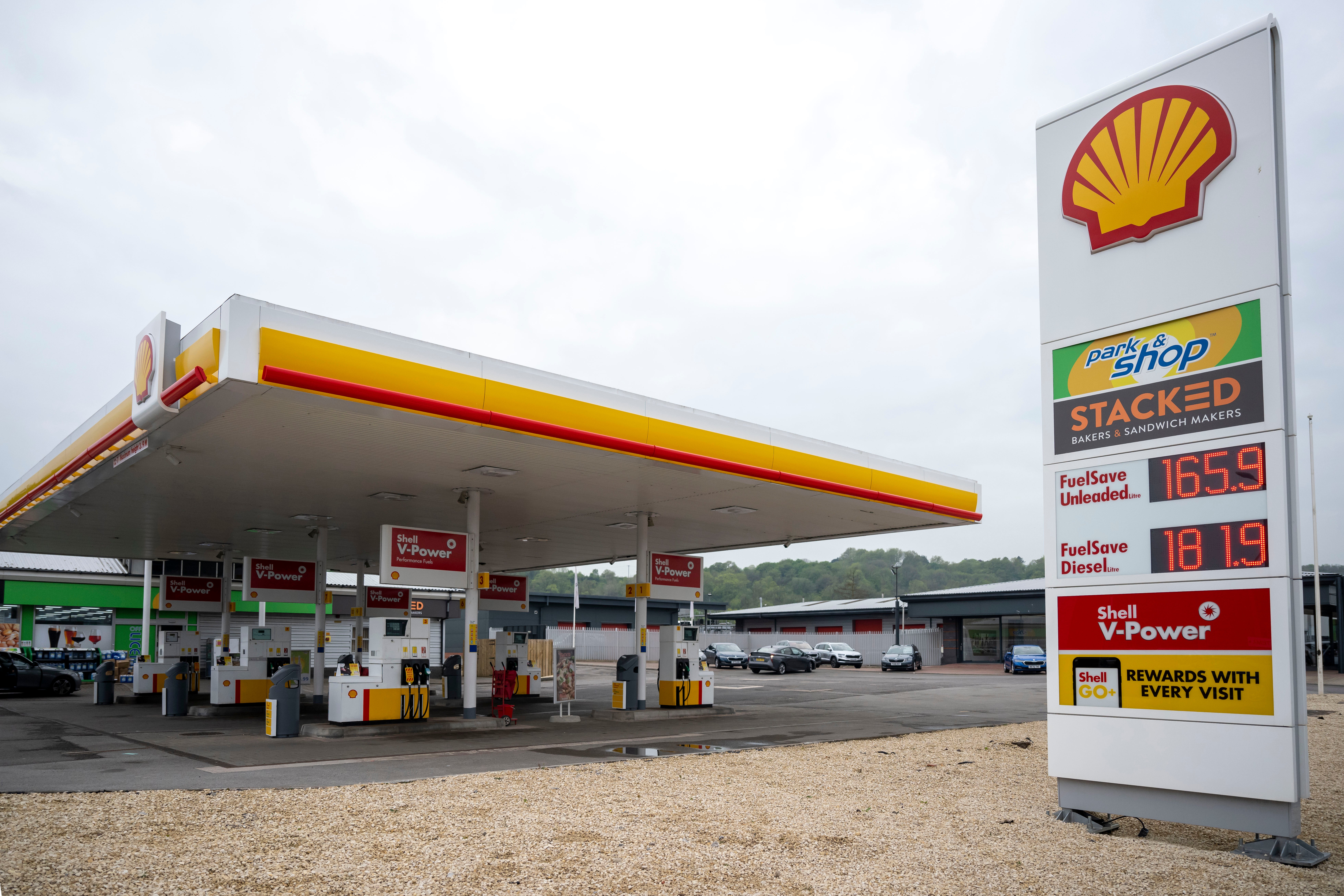Oil firms collect £22bn in profits as fuel and energy bills soar
BP, Shell and Exxon among firms reporting big rises in revenues, while Britsh Gas and SSE have boosted their earnings expectations

Oil, gas and electricity companies have raked in billions of pounds in extra profits this year as families struggle with massive rises in fuel prices and gas bills.
Shell, BP, Exxon Mobil and Chevron have all seen profits rise, boosted by high oil prices in the wake of Russia's invasion of Ukraine. Between them, the four companies reported $27.3bn (£22bn) in profits during the first three months of this year.
Energy suppliers have also enjoyed bumper earnings, with British Gas owner Centrica updating the stock market on Tuesday to say it expected profits to be at the top end of previous guidance.
It came on the same day that the chairman of Tesco – Britain’s largest fuel retailer – said there was an “overwhelming need” for a windfall tax on energy companies after seeing the supermarket’s customers “extremely stretched”.
Tesco sold £6.6bn of petrol and diesel in its latest financial year – a 48 per cent increase on 2020/21.
Forecourt prices have surged to record highs this year while the price cap on domestic energy billed jumped 54 per cent last month.
New estimates from consultants Cornwall Insight predict that the cap will rise again from £1,971 to £2,395 for the average household, putting extra pressure on consumers. Prices are expected to remain elevated until at least the end of 2024.
The latest profit figures will lend further weight to calls for a windfall tax on energy companies. Labour has pushed for a tax on North Sea oil and gas revenues which it claims would raise around £1.2bn to help households with bills.
Tesco chairman John Allan told BBC Radio 4’s Today programme ahead of the Queen’s Speech that he thinks oil and gas companies are “expecting” a windfall tax and doubts “they would actually be much fazed by it”.
The speech laying out Boris Johnson’s legislative agenda for the year has been criticised for not including adequate measures to tackle the cost of living crisis.
The UK’s “Big Six” energy suppliers have yet to report results for the first quarter of this year but British Gas is not alone in forecasting stellar financial performance.
Rival supplier and energy network operator SSE recently upgraded its profit outlook to £1bn for the year to 31 March, a rise of 10 per cent on last year’s performance.
E.On is set to deliver its results on Wednesday with analysts forecasting earnings from the group’s core business to jump from £1.6bn in 2021 to £2.1bn in 2022.
BP boss Bernard Looney likened the oil giants’ business to a “cash machine” last year, as sales bounced back after being hammered by the pandemic.
Underlying profit rose to $6.2bn (£5.3bn) in the first three months of this year, more than double the $2.6bn (£2.1bn) BP made in the same period last year.
It was the firm’s best quarterly result in a decade and helped Mr Looney to a big pay rise as he collected an annual package of £4.5m, up from £1.7m a year earlier.
Exxon Mobil, the ultimate owner of Esso, reported profits of $5.5bn (£4.4bn) during the first quarter of this year, up from $2.7bn (£2.1bn) in the same period during 2021.
Revenue for the Texas-based oil major came in at $90.5bn (£73bn) during the latest period, up from $59.1bn (£48bn) a year ago when sales were impacted by Covid restrictions. Esso has more petrol stations than any other operator in the UK, with 1,227.
Shell has also benefited from rising oil prices. Its adjusted earnings – which exclude one-off costs – rose to $9.1bn (£7.3bn) in the first quarter from $3.2bn (£2.5bn) in the same period last year.
Chevron, which owns the Texaco brand, reported its profits had quadrupled to $6.5bn (£5.2bn), the company’s best performance in 10 years.
Oil companies argue that their profits have always been cyclical – rising when the price of crude is high and falling when it is low.
All major oil companies saw sales plunge during the early part of the pandemic. Several firms, including Exxon, Shell and BP, have written off billions of dollars as they hurry to exit investments in Russia.
However, as financial pressures on consumers mount, political pressure to tax this year's bumper revenues is growing. BP and Shell have both committed to making backing future projects in the UK, undermining arguments that a windfall tax would deter investment.
Ed Miliband, Labour’s shadow climate change and net zero secretary, said government plans to tackle spiralling fuel bills, including a “buy now pay later” scheme of rebates, were “wholly inadequate to meet the scale of needs. And they refuse to implement a windfall tax on the oil and gas producers making record profits, that could fund real support for families.”
Join our commenting forum
Join thought-provoking conversations, follow other Independent readers and see their replies
Comments
Bookmark popover
Removed from bookmarks